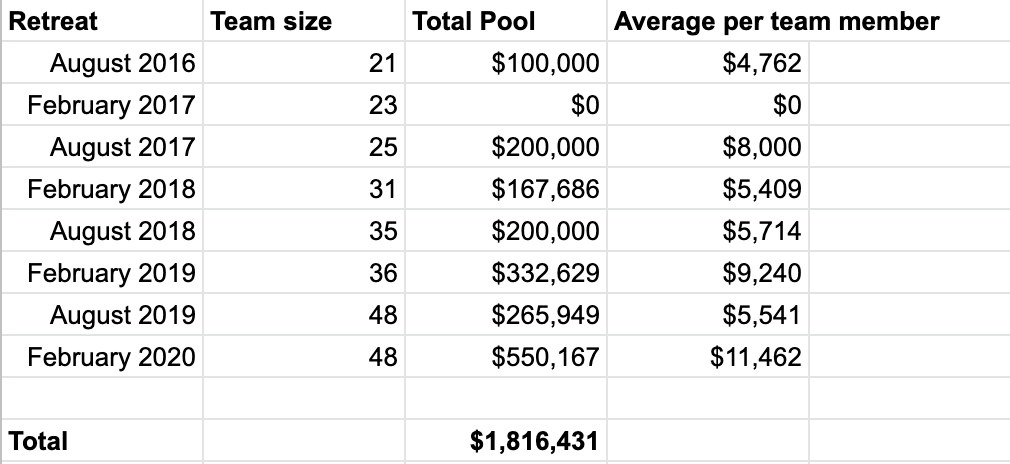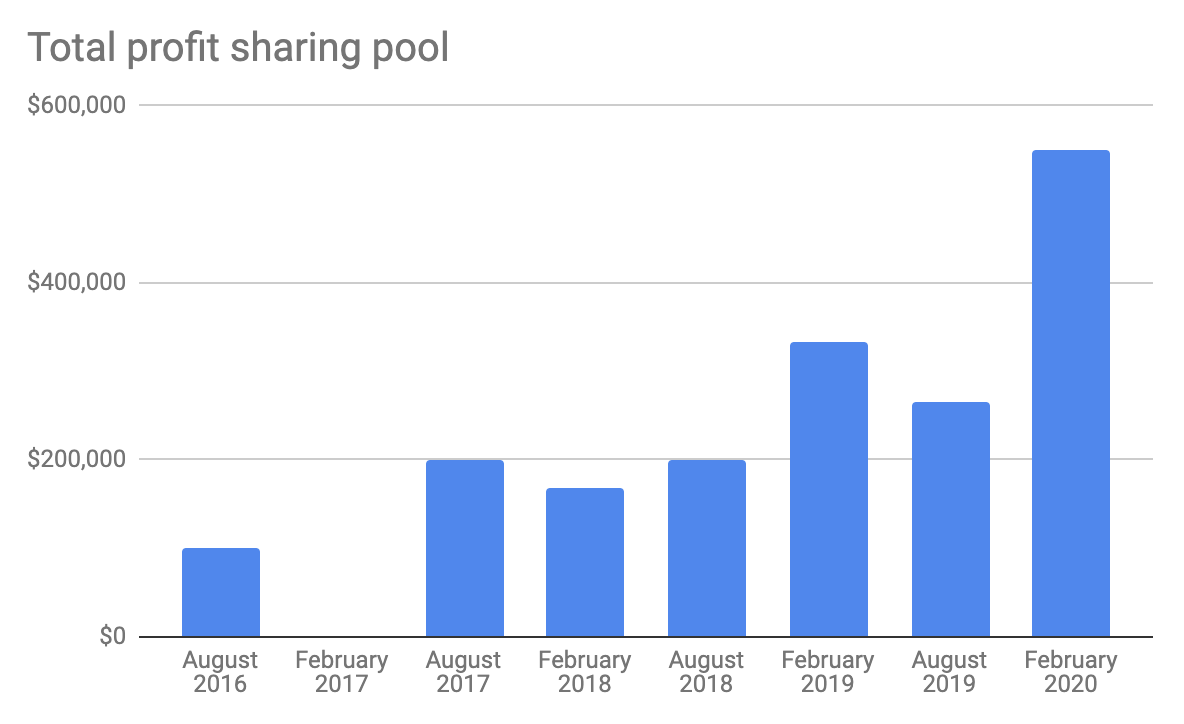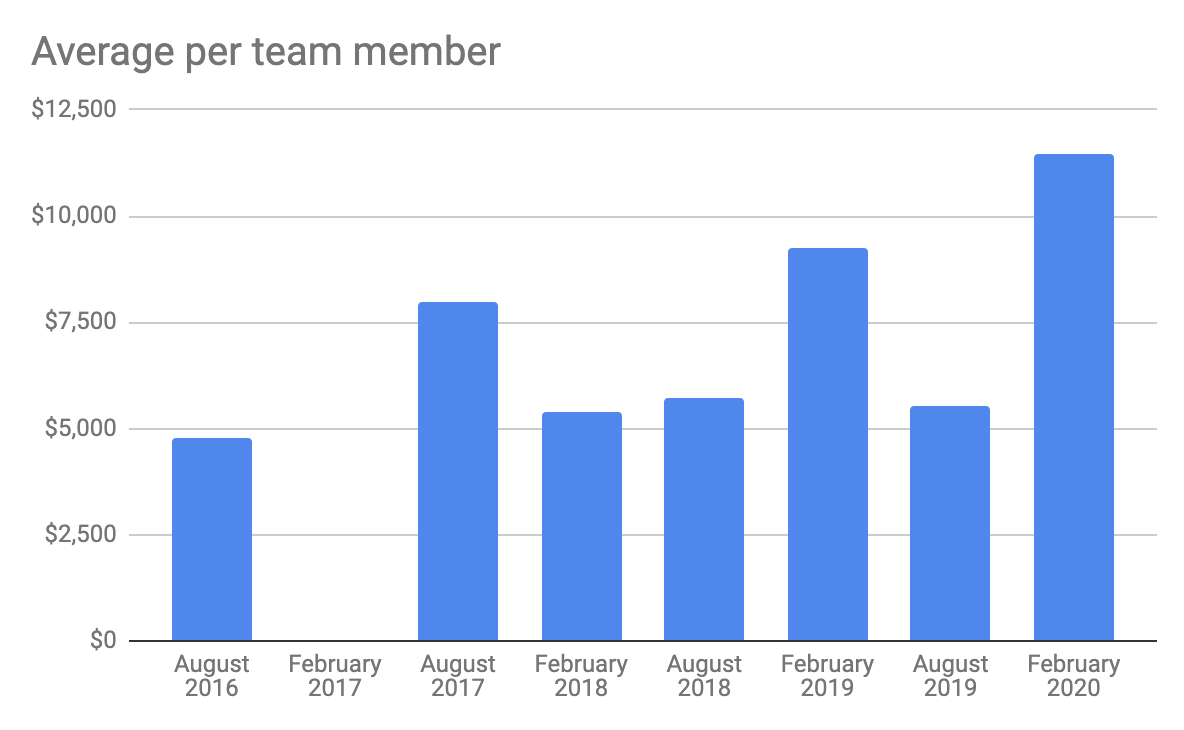Shared Our Profit Sharing Model
by Nathan BarryNow that our 8th ConvertKit team retreat is wrapped up, we often get questions about profit sharing.
By running with a relatively small team for our revenue ($20M ARR & 48 people) we are able to distribute profits in addition to the equity grants.
We're over $1.8M total now!
The total profit sharing pool depends on how much profit we do in the six month period. 52% of all the company profits go into this pool.
In 2019 we spent aggressively to grow the team in the first half of the year and made far more profits in the second half.
Because we had double the pool size and the same size of team (we were -1 and +1 on team members for no net change) the average check we handed out this week was $11,462!
This is 25% based on time with the company, 75% consistent for everyone. The largest was nearly $16k!
Originally the formula included a bonus for performance, but the team decided to remove that so everyone is rewarded equally. We all win together.
Low performance is handled separately from profit sharing.
In 2020 we made a deliberate decision to lower profit in order to launch and grow a free plan. The team is all in on making the short term trade-off for the chance of long-term gains!
Original Twitter thread: https://twitter.com/nathanbarry/status/1231227773114441728




